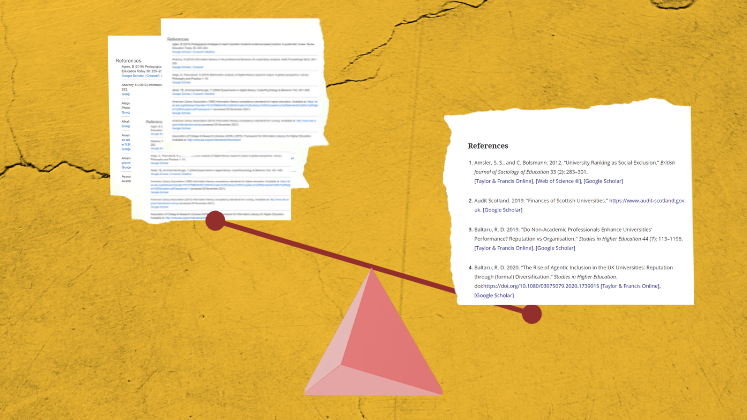Despite the efforts of journals and editors to the contrary, the well-known academic folk-devil, Reviewer 2 continues to make the lives of researchers miserable. Gorgi Krlev and Andre Spicer draw on a recent encounter with reviewer 2 and the subsequent twitterstorm over what counts as epistemic respect. They explain what epistemic respect means, what needs to change in academia to uphold it, and why this is more than a question of good manners, but is essential to an inclusive and innovative research system.
In the life of every academic, reviewer 2 is a constant source of dread. Reviewer 2 is the personification of the peer reviewer who is rude, vague, smug, committed to pet issues […], and unwilling to treat the authors as peers. The hashtag #AcademicTwitter is full of horror stories about how reviewer 2 misbehaves in assessing the work of others. While some have suggested that reviewer 2 gets an unnecessarily bad reputation, the issue of overly harsh peer reviews is certainly present, as the website, “shitmyreviewerssay” demonstrates.
Gorgi recently had a closer encounter with reviewer 2. The issue lay not with the tone of the review, nor with the final decision that the paper was rejected. This happens to every researcher, all the time. However, the author felt that this particular reviewer 2 crossed a red line by generally dismissing research that is published in “lower tier” journals.
He contacted the journal editor and tweeted about it. This provoked an astonishing reaction on Twitter, dominated by a mix of outrage and solidarity, as documented in our recently published essay Reining in Reviewer Two.
Our purpose was not to produce yet another rant against reviewer 2. In fact, we recalled incidents in which we were playing the role of reviewer two. Afterall, Reviewer 2 lurks in all of us. Instead, we wanted to call out the issues and come up with solutions – which are all grounded in what we call: epistemic respect.
What is epistemic respect and why does it matter?
To develop our idea of epistemic respect, we built on the concept of epistemic injustice proposed by moral philosopher Miranda Fricker. It occurs when a person’s viewpoints are marginalized because they are unfamiliar to others (such as the meaning of sexual harassment before the 1970s). Showing epistemic respect means making a conscious effort to understand and appreciate that claim, even though one might disagree or have difficulties relating to it.
Epistemic respect entails three aspects:
- The attentional aspect: demands an effort to understand a claim instead of (willfully or carelessly) failing to apprehend or misrecognizing knowledge claims, for instance by not reading a manuscript properly or by caricaturing an argument.
- The valuation aspect: demands giving worth to a claim solely based on its logic soundness, empirical support or clarity of argumentation instead of weighing a claim by where its constituting arguments originate, or in which journals they have been published.
- The behavioural aspect: demands careful acknowledgement of a claim’s strengths and limitations, balanced argumentation, or detailed reason giving instead of closing one’s eyes to counter-responses or refusing to engage with the essence of a claim.
Conforming to the three aspects would not only improve peer reviewing, it would also improve public debate about scientific findings, or how we make use of those findings to decide on the future course of society.
Why do researchers keep violating epistemic respect, and what can we do about it?
Violations of epistemic respect are entrenched early in a researcher’s academic career. Doctoral training, hiring and promotion decisions usually focus on getting into a small number of top journals. They also have to do with how we conduct peer reviews, which are still based on correspondence with huge intermittent time lags. Finally, they may be propelled by the inactivity of editors as well as encouraged by a peer review system at its limits.
Our most important and radical suggestion is for journals to run a natural experiment on different degrees of openness in peer review
We came up with a number of solutions. These range from a contractual commitment that reviewers sign to uphold epistemic respect, to banning “troll reviewers” that show no sign of changing even after sanctions by the academic community. Behaviour which seems to remain present even in journals, such as PLOS ONE, which define a good article by ‘technical soundness’, rather than notions of quality often linked to prestige.
Our most important and radical suggestion is for journals to run a natural experiment on different degrees of openness in peer review (fully blind, single blind, fully open; with or without self-selection; documentation in the blockchain etc.)—all connected with making peer exchanges public during or after the completion of the review process. Instead of ideological arguments about the affordances of a blind review system, or milder steps towards openness such as Nature’s “transparent peer review system”, this experiment would not only enable evidence-based decisions on how to uphold epistemic respect best, but also produce insights on what its benefits are.
What can we gain from upholding epistemic respect?
Violations of epistemic respect keep new thought from gaining traction, continue to marginalise topics, methodologies or theories that are considered exotic, and uphold homogeneous and narrow definition of academic knowledge. Epistemic respect is therefore more than a question of good manners and is integral to improving three areas of research:
- Innovation: As one commentator remarked, innovation typically emerges outside the centre, and we have evidence that the best work in less well-regarded journals is far stronger than most work in top journals. Epistemic respect enables greater creativity by emphasising the need to take novel knowledge claims at face value, rather than depending on inaccurate quality indicators.
- Accelerating knowledge production: As a recent finding suggests, we have more papers than ever before, but the pace of pushing the boundaries of knowledge has slowed down significantly. Some have suggested we have no clue of why that is. But we have a hunch: epistemic respect, currently supressed by conservatism and risk aversion, would help connect different fields and push so-called “fringe” issues towards the mainstream.
- Making academia more inclusive: There is increasing awareness that the domination of Western and often also of male viewpoints has stymied the diversity of knowing and learning in academia. Epistemic respect would help cherish and durably implement alternative viewpoints and ultimately make academia more inclusive.
So, the next time you review a paper, better show (more than) a little epistemic respect.
Readers can find the full essay, Reining in Reviewer Two: How to Uphold Epistemic Respect in Academia, published in the Journal of Management Studies here.
The content generated on this blog is for information purposes only. This Article gives the views and opinions of the authors and does not reflect the views and opinions of the Impact of Social Science blog (the blog), nor of the London School of Economics and Political Science. Please review our comments policy if you have any concerns on posting a comment below.
Image Credit: LSE Impact Blog via Canva.









When I edited a journal, I took the position that reviews were commissioned to help me come to a more rounded judgement on a paper’s quality and suitability. Some were so hopeless I wouldn’t pass them on to the author(s) and in most cases I would say how much weight I attached to each review or element of it. Simply forwarding two or more contradictory reviews or comments and leaving it to the authors to reconcile them is an abdication of one’s editorial responsibility. I have to say that when I was in this role, the volume of submissions and pressure to publish were much less.
Cheers
Hi Paul, I thinks this is a very true and striking description of editorial duties, what will be helpful for authors and the academic community overall. We should take example at these, no matter how the circumstances might have changed. Thank you!